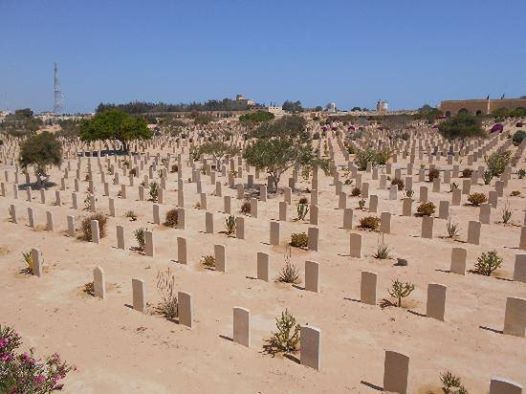President Sisi & 35 nations mark 75th anniversary of the battle of El Alamein

Cairo – Asshraf AboArafe
On Saturday 21 October, a commemoration service to mark the 75th anniversary of the 1942 second Battle of El Alamein will take place in the Commonwealth War Graves Commission Cemetery of El Alamein.
Over 35 nations represented at the ceremony to commemorate those who died in the battle, which was a turning point in World War II. President Sisi will be present at the cemetery. Minister of State for the Middle East and North Africa the Right Honourable Alistair Burt MP, Vice Chief of the Defence Staff General Sir Gordon Messenger, Vice Admiral Sir Tim Laurence, the Vice Chairman of the Commonwealth War Graves Commission, and His Excellency Ambassador John Casson, will attend a ceremony on behalf of the United Kingdom.
The event has been coordinated by the British Embassy on behalf of all nations who took part in the battle, including Australia, New Zealand, India, South Africa, France, Germany, Greece and Italy. More than 7,350 servicemen are buried in Commonwealth War Graves Commission El Alamein War Cemetery, including over 800 who were never identified. The El Alamein Memorial in the cemetery bears the names of a further 12,000 soldiers who have no known grave.
The ceremony will be followed by a reception hosted by President Sisi, and the reopening of the El Alamein War Museum.
The ceremony comes at a time when plans for New Alamein City are underway. The UK is Egypt’s number one foreign investor, and has been engaging with the Governor of Mersa Matrouh to bring new opportunities to the area, which witnessed some of the fiercest fighting of World War Two.
His Excellency Ambassador John Casson said, “Today former enemies have come together to reflect on the past and remember the sacrifices made 75 years ago. We now stand together, in partnership with Egypt, in order to build a prosperous and democratic future.’’
Sir Tim Laurence, Vice Chairman of the Commonwealth War Graves Commission (CWGC), said: ‘’In Egypt alone, almost 29,000 Commonwealth service personnel died in the Second World War. The significance of the battle, and its human cost, are embodied in the CWGC El Alamein Cemetery and Memorial. In terms of its area, it is one of the largest Commission sites in the world. Our historic commitment to honour the dead with beautiful planting here faces perhaps its greatest test, and I am proud of the work of our gardeners – the majority of them Egyptian – whose hard work and skill ensures that carefully chosen indigenous plants flower amongst the thousands of headstones set in the desert sands”
Minister for the Midde East Alistair Burt said, ‘’Today’s ceremony is a time to remember the human cost of war, and reflect on the importance of working together to build a more peaceful future.’’
Background
The Second Battle of El Alamein began on 23 October 1942. British, Australian, New Zealand, Indian and South African troops, as well as Free French and Free Greek forces, under the command of General Montgomery, defeated the Axis powers under the command of Field Marshall Rommel, after a fiercely fought twelve day battle. It was a turning point in WWII. In Churchill’s words: ‘Before Alamein we never had a victory. After Alamein we never had a defeat.’
The Commonwealth War Graves Commission maintains the graves of the 1.7 million Commonwealth servicemen and women who died during the two world wars. It also holds and updates an extensive and accessible records archive. The CWGC operates in more than 23,000 locations in 153 countries across all continents except for Antarctica.

 to all..
to all.. 


